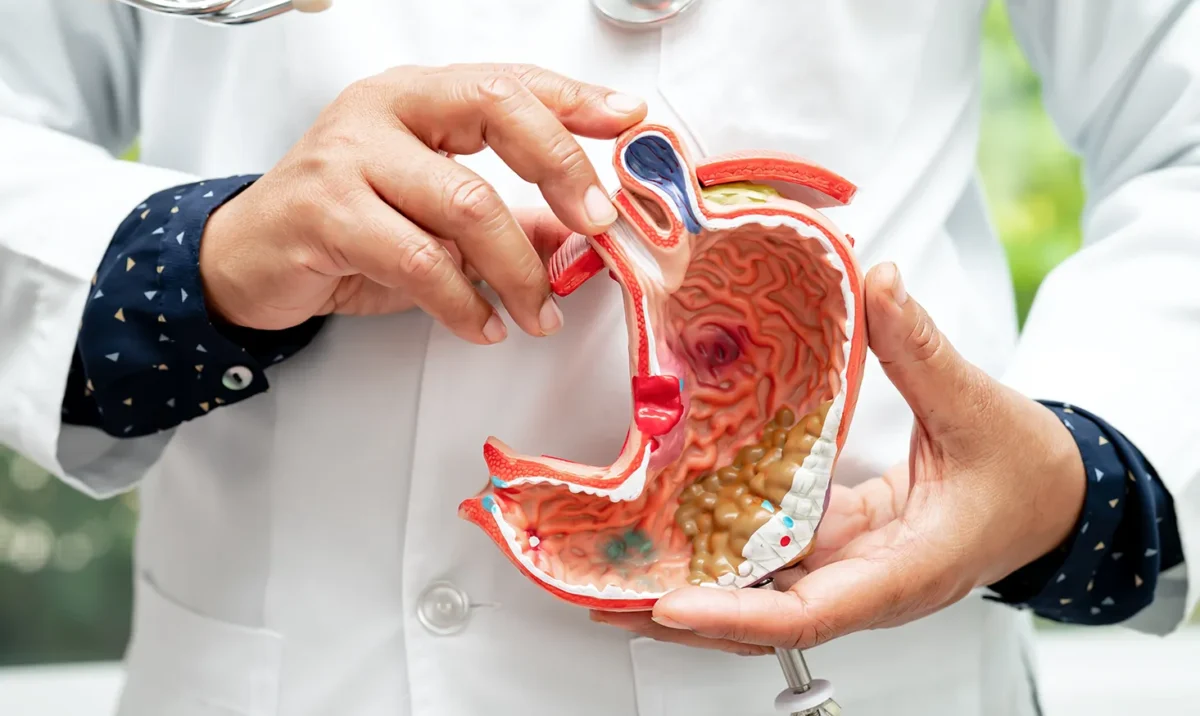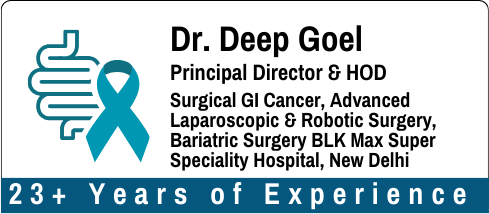How to Prevent Stomach Cancer from Coming Back?

Surviving stomach cancer is an incredible achievement, one that marks the end of a difficult chapter and the beginning of a new journey. But for many survivors, this new phase brings its own set of questions and challenges, especially around stomach cancer recurrence prevention. While completing treatment is a significant victory, keeping the cancer from coming back requires ongoing attention, wise lifestyle choices, and regular follow-up care.
Globally, studies show that up to 30–50% of gastric cancer patients experience recurrence within 2–3 years after curative treatment, depending on the stage and type of cancer. Most recurrences happen in the first few years, making early survivorship a critical window for intervention.
This blog offers practical advice on lifestyle management after stomach cancer, strategies for maintaining health in the years ahead, and actionable tips for gastric cancer follow-up that support long-term wellness.
Understanding Recurrence: What You Need to Know
Stomach cancer after treatment doesn’t always mean the end of your cancer journey. Recurrence of gastric cancer can occur locally (near the original tumour site), regionally (nearby lymph nodes), or distantly (in organs like the liver or lungs). Risk factors include:
- Stage of cancer at diagnosis
- Lymph node involvement
- Whether surgery achieved clean margins
- Lifestyle choices (diet, smoking, alcohol)
- Genetic predispositions
Understanding your risk level can help guide what follow-up care and lifestyle adjustments are needed.
Life After Stomach Cancer: Why Follow-Up and Lifestyle Changes Matter
Finishing treatment is a significant step, but follow-up care and maintaining healthy habits are crucial to staying well. Regular check-ups and lifestyle changes can help prevent recurrence and support long-term recovery.
1. Stick to a Regular Follow-Up Schedule
One of the most essential tips for gastric cancer follow-up is to attend all scheduled doctor visits. These help catch signs of recurrence early.
Typical follow-up plan:
- Every 3–6 months for the first two years
- Every 6–12 months until five years post-treatment
- Annual visits after five years (if no signs of recurrence)
Tests may include blood work, CT scans, upper endoscopy, and tumour marker evaluations (like CEA or CA 19-9).
Dr. Deep Goel says, “Regular follow-ups act as our early warning system. They allow us to detect and respond to any changes before they become major concerns.”
A patient of Dr. Deep shared, “After being cancer-free for two years, I was devastated to learn my stomach cancer had returned. Dr. Deep Goel approached the recurrence with such clarity and reassurance. He revised my treatment plan with advanced options and closely monitored my recovery. I’m now in remission again and feeling stronger every day.”
2. Eat for Healing and Prevention
A balanced and protective diet is crucial for stomach cancer survivors. Nutrient-rich foods support your immune system, digestion, and help reduce inflammation.
Foods to include:
- Colourful vegetables (spinach, carrots, broccoli, bell peppers)
- Fresh fruits (berries, papaya, bananas, citrus fruits)
- Whole grains (brown rice, oats, barley)
- Lean proteins (fish, tofu, legumes, skinless poultry)
- Healthy fats (olive oil, flaxseeds, walnuts)
- Probiotic-rich foods (yoghurt, kimchi, miso)
Foods to avoid:
- Processed meats (ham, sausages, bacon)
- Excess salt and pickled foods
- Sugary snacks and drinks
- Fried and greasy foods
- Alcohol (limit or eliminate)
3. Exercise Regularly
Physical activity plays a significant role in stomach cancer recurrence. It improves circulation, boosts your immune system, and helps manage weight and stress.
Safe exercise tips:
- Aim for at least 150 minutes of moderate exercise per week
- Start with walking, gentle yoga, or swimming
- Add light strength training as your stamina improves
- Stretch regularly to improve digestion and reduce stiffness
4. Manage Stress and Emotional Health
Life after cancer can bring emotional ups and downs. Managing stress is a big part of the lifestyle after stomach cancer.
Ways to cope:
- Practice mindfulness, deep breathing, or meditation
- Join a cancer survivor support group (online or in person)
- Talk to a counsellor or psychologist
- Express yourself through writing, painting, or music
5. Avoid Smoking and Alcohol
Both smoking and alcohol increase the chances of recurrence of gastric cancer. They can irritate the digestive tract and affect healing.
Guidelines:
- Quit smoking completely
- Avoid secondhand smoke
- Limit alcohol (or avoid entirely)
Another patient of Dr. Deep Goel shared, “I was diagnosed with stomach cancer during a routine endoscopy. Dr. Goel explained everything with care and recommended minimally invasive surgery. His reassuring guidance helped me recover smoothly, and today I’m cancer-free and living well.”
6. Take Supplements and Medications with Caution
After stomach cancer surgery or chemotherapy, your body may struggle to absorb some nutrients. You may need supplements like:
- Vitamin B12 (especially after partial/total gastrectomy)
- Vitamin D3
- Iron
- Calcium
7. Monitor Digestive Health
Many survivors experience digestive challenges due to surgery or treatment. Supporting your gut is part of long-term care after stomach cancer.
Tips for better digestion:
- Chew food thoroughly
- Don’t lie down immediately after eating
- Avoid carbonated drinks and overly spicy meals
- Track any persistent symptoms like bloating, pain, or nausea
8. Maintain a Healthy Weight
Being overweight can increase the risk of many cancers, including gastric cancer. On the other hand, unintentional weight loss may be a sign of a digestive issue.
Tips for a healthy weight:
- Focus on balanced meals, not calorie restriction
- Combine movement with good nutrition
- Weigh yourself monthly and track changes
Sample Daily Routine for Stomach Cancer Survivors
Here’s a simple daily routine that can support healing, improve digestion, and boost energy levels for stomach cancer survivors adjusting to life after treatment:
Morning:
- Start with a glass of warm water
- Go for a walk or stretch
- Eat a light, nutritious breakfast
Afternoon:
- Prepare a healthy lunch rich in lean protein and veggies
- Take a short nap or rest
- Do light physical activity, like a short walk or yoga
Evening:
- Have an early, light dinner
- Journal or read to unwind
- Practice deep breathing or gratitude before bed
Dr. Deep Goel adds, “Survivorship is not just about living longer, it’s about living better. The choices patients make after treatment can greatly influence their long-term health and quality of life.”
Final Thoughts: Hope and Health After Stomach Cancer
Living a whole, healthy life after cancer is possible, and thousands of survivors are doing it every day. With the proper habits, regular checkups, and emotional support, you can take fundamental steps to prevent gastric cancer from returning.
Remember, your journey doesn’t end with treatment. In many ways, it’s a fresh start, one where every meal, every walk, every positive choice adds up to lasting health.
Stay informed, stay active, and, above all, stay hopeful. You’ve already fought a tough battle. Now, it’s time to live well and thrive.
FAQs
1. Can I drink coffee or tea as a stomach cancer survivor?
Yes, in moderation. Avoid drinking them on an empty stomach or in high quantities, as they may cause discomfort in some post-surgery patients.
2. Is weight loss after surgery normal?
Yes, moderate weight loss is expected. It usually stabilises within a few months as your body adjusts to dietary changes.
3. Does stress affect cancer recurrence?
Chronic stress can impact your immune system and overall health. Managing stress through mindfulness, support groups, or therapy is beneficial.
4. What foods should I avoid as a stomach cancer survivor?
Limit or avoid processed meats, salty or pickled foods, sugary snacks, fried foods, and alcohol, as they may increase your risk of recurrence.
5. Is recurrence more common in older adults?
Age can be a factor, but recurrence risk depends more on cancer stage, treatment success, and lifestyle. Regular follow-up helps manage it at any age.
Explore more blogs: Silent Signs of GI Cancer: Symptoms You Shouldn’t Ignore

